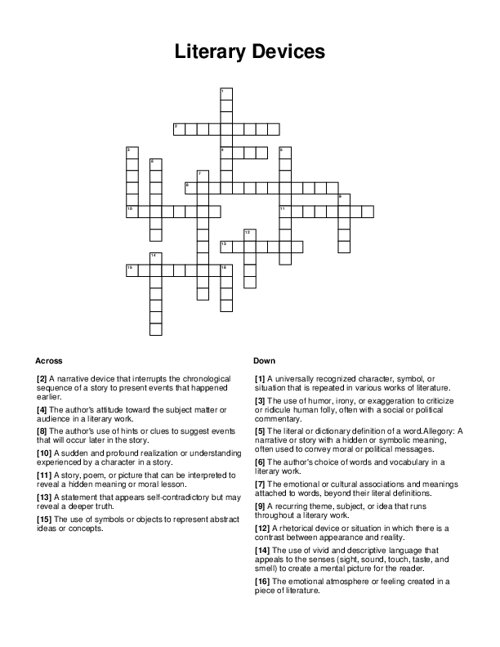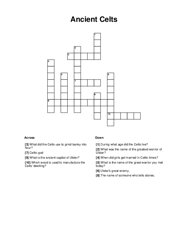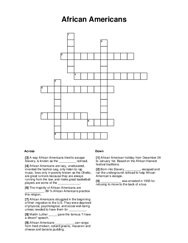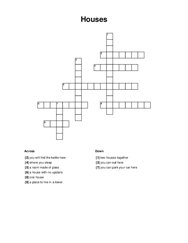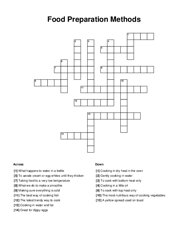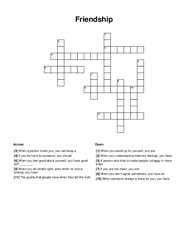Literary Devices Crossword Puzzle
QUESTIONS LIST: archetype: a universally recognized character, symbol, or situation that is repeated in various works of literature, epiphany: a sudden and profound realization or understanding experienced by a character in a story, tone: the author's attitude toward the subject matter or audience in a literary work, mood: the emotional atmosphere or feeling created in a piece of literature, diction: the author's choice of words and vocabulary in a literary work, imagery: the use of vivid and descriptive language that appeals to the senses (sight, sound, touch, taste, and smell) to create a mental picture for the reader, connotation: the emotional or cultural associations and meanings attached to words, beyond their literal definitions, denotation: the literal or dictionary definition of a word.allegory: a narrative or story with a hidden or symbolic meaning, often used to convey moral or political messages, foreshadowing: the author's use of hints or clues to suggest events that will occur later in the story, flashback: a narrative device that interrupts the chronological sequence of a story to present events that happened earlier, symbolism: the use of symbols or objects to represent abstract ideas or concepts, motif: a recurring theme, subject, or idea that runs throughout a literary work, irony: a rhetorical device or situation in which there is a contrast between appearance and reality, paradox: a statement that appears self-contradictory but may reveal a deeper truth, satire: the use of humor, irony, or exaggeration to criticize or ridicule human folly, often with a social or political commentary, allegory: a story, poem, or picture that can be interpreted to reveal a hidden meaning or moral lesson.
